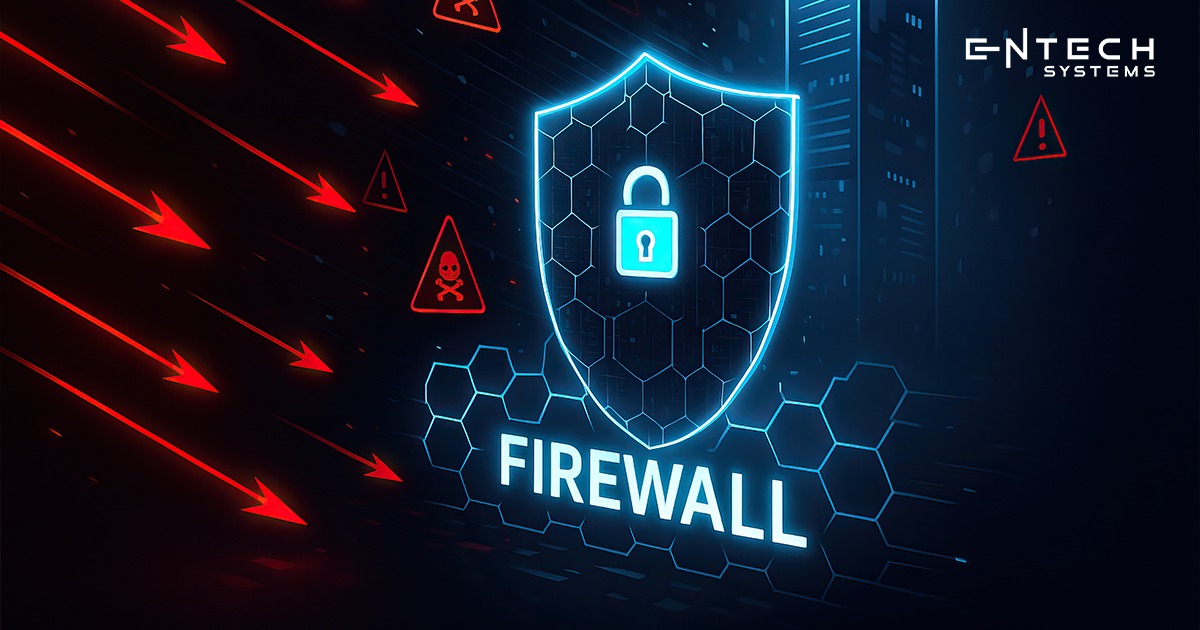
What is a Firewall and Why Does It Matter?
And in the current global digital world, cyber threats of all kinds are increasing exponentially. Each day, companies face the risk of damaging hacking events or malware, and, of course, data breaches. For some businesses, a cyber attack can be devastating, leading to monetary loss, thousands of hours of labour being destroyed, and destroyed trust with customers.
The only bright light of hope for a company facing these risks is tools, with one of the most important being a firewall. Firewalls do most of their work behind the scenes; however, they are often one of the strongest defenses your organization can have on its networks. Let’s discuss a bit more about what a firewall is, how it protects your organization, and why it is so important for every company today.
What is a Firewall?
A firewall acts like a security guard for your network. It expects everything coming and going from your network and only permits safe traffic through. If something suspicious comes along, firewalls stop it.
Think of the firewall as a fence between you (the internal) and the rest of the world (external). Without it, you essentially have a big, wide-open network that is exposed to anyone who has access to the internet. With a firewall, you have a level of control, security, and peace of mind.
Firewalls are used in both home and business settings. They protect personal information, customer data, and company systems. For organizations that deal with data containing sensitive information, a firewall is not a choice; it is a requirement.
Why Do We Need Firewalls?
Firewalls protect against more than just hackers. & they help in many different ways:
They stop strangers from entering your network without permission.
They prevent employees from visiting unsafe websites.
It detects risky behaviour and blocks harmful applications.
They reduce the risk of social engineering attacks where people trick staff into sharing data.
And they stop malware from spreading across your system.
To sum it all up, firewalls do more than just block threats. They offer control, protect your network, and foster confidence in customers’ feelings that they deserve the security of their own data.
Different Types of Firewalls
There are varieties of firewalls, and depending on your situation, you may use one type or a combination of them.
1 . Packet Filtering Firewall: This prevents access to packets of information (small bits of data) based on rules (source, destination, etc.).
2 . Stateful Firewall: This checks not only if the packet might have attacked your network, but also checks if it belongs to an established connection (so more than just packets).
3. Application Layer Firewall: This reviews and examines the data at the application layer (for some suspicious web requests, etc).
4. Proxy Firewall: This sits between the internet and your network (acting as an intermediate layer). It can hide your ownetwork’s internal systems.
As stated above, many firewalls only offer one or two functions. Some systems are referred to as gateways, such as a gateway that combines multiple firewall functions (layered security).
How Does a Firewall Work?
A firewall can be a physical device or a software program. Once installed, it constantly scans and filters traffic. If the traffic looks safe, it gets through. If it looks harmful, it is blocked.
You can think of it like airport security. Everyone passes through a check. If you’re safe, you continue your journey. If not, you’re stopped right there.
In a business network, firewalls are always on guard. They protect emails, files, transactions, and all digital communication. Without them, your organisation could be exposed to major risks.
Why Studying Firewalls is Important
Understanding firewalls is not just for IT experts. Anyone using the internet benefits from knowing how they work. Here’s why:
Cyber threats can happen to anyone, not just large businesses. A firewall will protect your personal devices at home. Businesses can avoid significant financial loss with a properly configured firewall. If teams understand firewalls, they will make better decisions about cybersecurity.
In other words, studying firewalls can provide a safe place in a connected environment. The more you know, the more you will protect yourself and your business.
Conclusion
Cybersecurity is not optional! With the threats online increasing every day, a firewall is one of the best ways you can defend yourself. It protects you like a shield, behaving like a barrier that keeps access to your network location safe from hackers, malware, and harmful activity.
At Entech Systems, we believe that strong technology protection begins with awareness. Firewalls are not difficult to understand, but when you know how to use them, they are a powerful tool that can distinguish between a safe business and a vulnerable business.
If you are serious about protecting your data, a firewall is a great first step. It is not just a technology, it is peace of mind.


